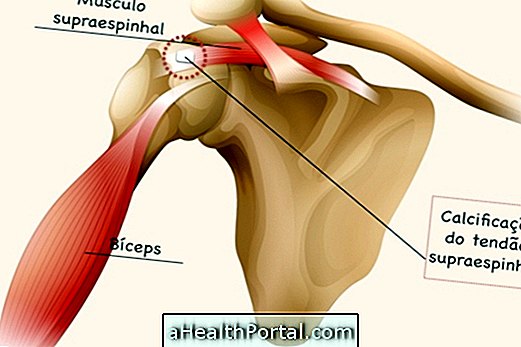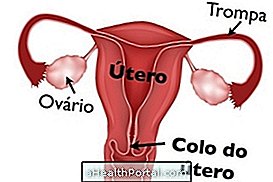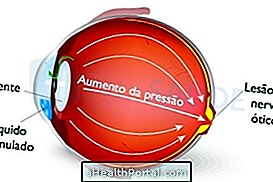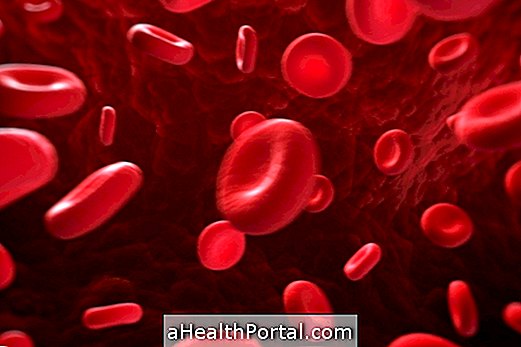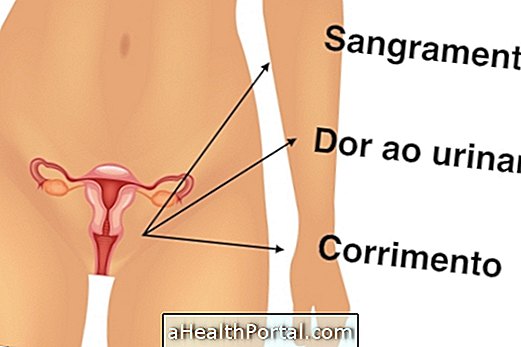Anorexia and bulimia are two problems that involve a complicated relationship with food and nutrition. While in anorexia the person does not eat, afraid of getting fat and despite the thinness installed, in bulimia the person eats everything he wants and vomits for guilt or remorse for fear of fattening in this case is always within the weight of the norm or slightly above of the weight.
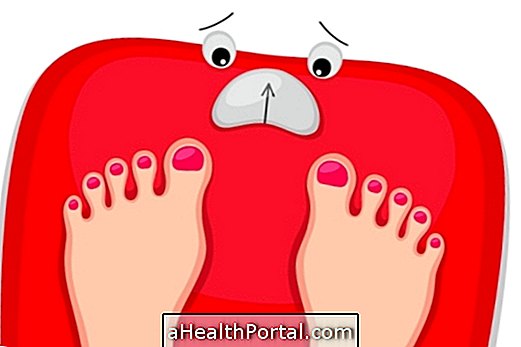
How To Know if It Is Anorexia
To identify if it is Anorexia, besides the thinness, one must be alert to the emergence of behaviors like:
- You are constantly fat, even when you are not overweight or even underweight;
- Refuses to eat or expresses a constant fear of gaining weight;
- Eat very little and always have little or no appetite;
- You are always dieting or counting all the calories in your food;
- He regularly practices physical activity with the intention of only losing weight.
Anyone who suffers from this disease tends to try to hide the problem, so he will try to hide the fact that he does not eat, sometimes feigning food or avoiding family lunches or dinners with friends, for example.

In a more advanced state this disease ends up having its impact on the body and the person's metabolism, as malnutrition sets in, causing symptoms such as:
- Absence of menstruation;
- Constipation;
- Abdominal pain;
- Difficulty tolerating cold;
- Lack of energy and tiredness;
- Swelling and heart problems.
In addition to these symptoms others may arise and in these more serious cases, the treatment may have to be performed in a hospital or clinics specializing in eating disorders, as hospitalization is necessary for medical monitoring 24 hours a day.
How to Identify Bulimia
Bulimia is already a little different from anorexia, and the person who always has normal weight or is slightly overweight "ideal", so it is necessary to be alert to the emergence of behaviors such as:
- Desire to lose weight, even when not needed;
- Exaggerated desire to eat at some meals;
- Exaggerated practice of physical exercise with the intensity of slimming;
- Exaggerated food intake;
- Constant need to always go to the bathroom after eating;
- Regular use of laxative and diuretic medicines;
- Weight loss despite appearing to eat a lot;
- Feelings of anguish, guilt, regret, fear and shame after overeating.
Those who have this disease tend to try to hide the problem, so they often hide everything they remember, often not managing to control themselves.

When this disease lasts for some time, it ends up causing a severe impact on the body, causing symptoms such as:
- Calluses and scars on the hands caused by constantly provoking vomiting with fingers;
- Chipped teeth, serrated and corroded;
- Swollen cheeks as the salivary glands may become swollen or atrophied;
- Irregular menstruation;
- Feeling of weakness or dizziness;
- Frequent abdominal pain and inflammation in the gastrointestinal system;
- Constant throat inflammation;
- Belly, swollen hands and feet;
- Constipation.
- In addition to these symptoms others may always appear and in the most serious cases it may happen that hospitalization is necessary so that the person can be watched and treated 24 hours a day.
How to Differentiate Anorexia from Bulimia
To distinguish between these two diseases, it is necessary to focus on their main differences, for although they may seem very different they can be easily confused. Thus, the major differences between these diseases include:
| Anorexia Nervosa | Nervous bulimia |
| Stop eating and refuse to eat | It continues to eat, most of the time compulsively and in exaggeration |
| Severe weight loss | Weight loss just slightly above normal or normal |
| Great distortion of the image of your body, seeing something that is not in accordance with reality | Makes your body image less distorted, seeing it very similar to reality |
| Starts many times in adolescence | It often begins as an adult, around the age of 20 |
| Constant denial of hunger | There is hunger and it is |
| Usually affects more introverted people | Usually affects more outgoing people |
| You do not see that you have a problem and you think your weight and behavior are normal | Your behavior causes shame, fear, and guilt. |
| Absence of sexual activity | There is sexual activity, although it can be reduced |
| Absence of menstruation | Irregular menstruation |
| Often obsessive, depressive and anxious personality | Often it presents excessive and exaggerated emotions, oscillations of humor, fear of abandonment and impulsive behaviors |
Both Anorexia and Bulimia because they are eating disorders always require specialized medical follow-up, with therapy sessions with a psychologist or psychiatrist to cure the disorder and with a nutritionist to treat the malnutrition that is installed.
These are diseases that emotionally weaken the sick person and can take months or years to heal, so it is very important the support and understanding of family and friends throughout the process, and especially affect adolescents and young women.
How to overcome anorexia
Learn the tips of nutritionist Tatiana Zanin to beat anorexia and reach the right weight:










